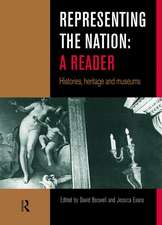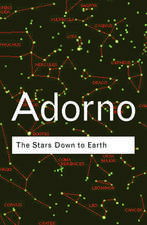Discourse, Dictators and Democrats: Russia's Place in a Global Process
Autor Richard D. Andersonen Limba Engleză Paperback – 11 oct 2016
| Toate formatele și edițiile | Preț | Express |
|---|---|---|
| Paperback (1) | 488.71 lei 6-8 săpt. | |
| Taylor & Francis – 11 oct 2016 | 488.71 lei 6-8 săpt. | |
| Hardback (1) | 1004.20 lei 6-8 săpt. | |
| Taylor & Francis – 20 mai 2014 | 1004.20 lei 6-8 săpt. |
Preț: 488.71 lei
Nou
Puncte Express: 733
Preț estimativ în valută:
93.52€ • 97.88$ • 77.83£
93.52€ • 97.88$ • 77.83£
Carte tipărită la comandă
Livrare economică 31 martie-14 aprilie
Preluare comenzi: 021 569.72.76
Specificații
ISBN-13: 9781138247345
ISBN-10: 1138247340
Pagini: 240
Dimensiuni: 156 x 234 x 13 mm
Greutate: 0.44 kg
Ediția:1
Editura: Taylor & Francis
Colecția Routledge
Locul publicării:Oxford, United Kingdom
ISBN-10: 1138247340
Pagini: 240
Dimensiuni: 156 x 234 x 13 mm
Greutate: 0.44 kg
Ediția:1
Editura: Taylor & Francis
Colecția Routledge
Locul publicării:Oxford, United Kingdom
Notă biografică
Richard D. Anderson, Jr., is a Professor of political science at the University of California, Los Angeles, where he has served on the faculty since 1989. Before earning the doctorate in political science from the University of California, Berkeley, he spent nine years in Washington, DC, as an intelligence analyst researching Soviet military capability and as a staff member of the House Permanent Select Committee on Intelligence and later of the Budget Committee assigned to the office of Rep. Les Aspin. He also holds a Master’s in International Affairs from the Woodrow Wilson School at Princeton University and is a graduate of Davidson College.
Recenzii
’This book certainly helps to fill in the niche of the complicated interdisciplinary study of the interrelation between political language and dictatorship. What is more, the author has succeeded in making it must-do reading for experts in political linguistics and equally understandable and enjoyable for all those interested in international politics, communication, and language. Through the rich content of the chapters and his globalized approach, Anderson enriches us with a critical and scientific analysis of a subject that is highly topical but unfortunately seldom chosen by scholars.’ Christ’l De Landtsheer, University of Antwerp, Belgium ’An imaginative and important advance in the study of political language. Using theory and case studies from around the world, Anderson shows how changes in political discourse strongly foreshadow advances in democracy.’ Francis A. Beer, Professor Emeritus, University of Colorado, USA '... a valuable empirical contribution to the interdisciplinaty subject of political discourse. ... a very useful and stimulating resource for a better understanding of Russia's transition from Soviet rule and that countty's place within broader global patterns of shifts between repressive dictatorships and more inclusive democratic political systems and identities.' Russian Review
Cuprins
Introduction: A Protester’s Tale; Part I Discursive Causality; Chapter 1 Voting and Repressing; Part II Russia Transformed; Chapter 2, 5. Material in this chapter first appeared in two journals. Some material derives from R. Anderson, Metaphors of dictatorship and democracy: Change in the Russian political lexicon and the transformation of Russian politics, Slavic Review 60, 2 (Summer 2001), 312–35. Slavic Review is published by the Association for Slavic, East European, and Eurasian Studies, and the material appears here with the permission of the publisher. Other material derives from R. Anderson,“Look at all those nouns in a row”: Authoritarianism, democracy, and the iconicity of political Russian, Political Communication 13, 2 (April–June 1996), 145–64. It is used by permission of the publisher, Taylor & Francis.; Chapter 3 Spreading Political Identity in Russia 1 Material in this chapter has been previously published in R. Anderson, Speech and democracy in Russia: Responses to political texts in three Russian cities, British Journal of Political Science 27, 1 (January 1997), 23–45. It is used by permission of the publisher, Cambridge University Press.; Part III Discursive Consequences of the Colonial Encounter; Chapter 4 Colonialism and Enfranchisement in Europe; Chapter 5 British Settler Colonialism and Victory in 1945; Chapter 6 The Global South;
Descriere
Many people take the trouble to vote even though each voter's prospect of deciding the election is nearly nil. Russians vote even when pervasive electoral fraud virtually eliminates even that slim chance. Could people vote or protest because they stop considering their own chances and start to think about an identity shared with others? With this in mind, Discourse, Dictators and Democrats presents a ground-breaking theory of what language use does to politics.















